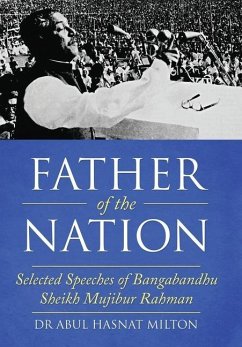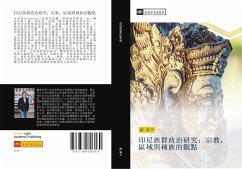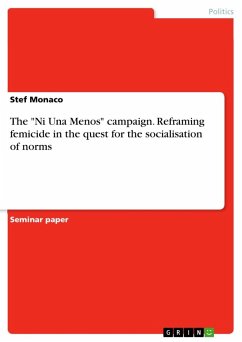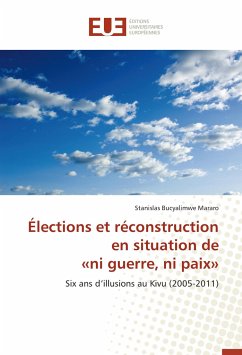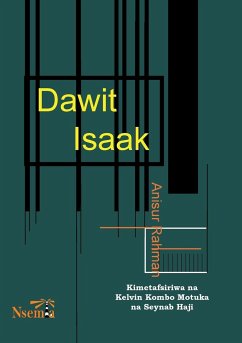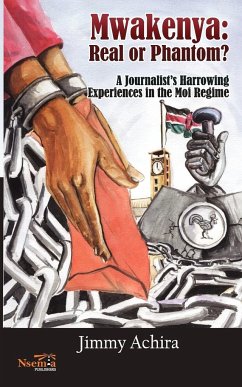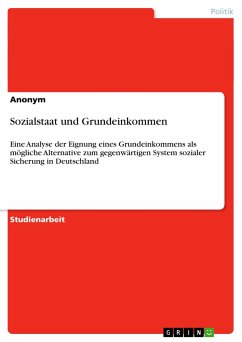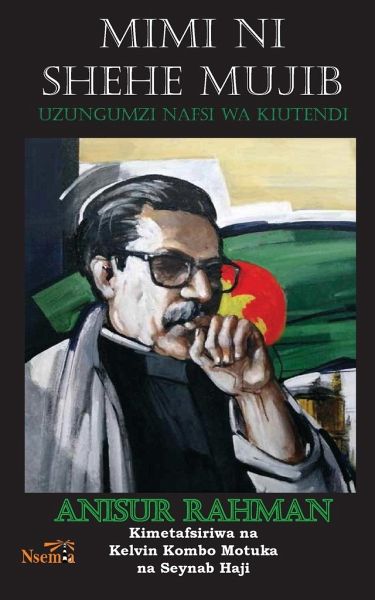
Versandkostenfrei!
Versandfertig in 1-2 Wochen

PAYBACK Punkte
11 °P sammeln!




Mwandishi huyu tajika na mtunzi, Anisur Rahman, ameandaa kazi bora ya Mimi ni Shehe Mujib: Uzungumzi Nafsi wa Kiutendi. Kazi hiyo ilinivutia kwa sababu ya ufaafu wa matukio halisi katika nchi ya Kenya yanayoshughulikiwa na mwandishi: masuala ya kijamii na kisiasa, siasa za lugha na ukiukaji wa haki za kibinadamu.
Anisur Rahman (b. 1978) was born in Madhupur in the district of Tangail, Bangladesh. He has been educated in Bengali and English language, literature, history, film and theatre studies at The University of Dhaka and the University of Stockholm. He contributes prose and poetry to different journals in various countries. He has authored more than twenty books of prose and poetry. His literary works have been translated into various languages for instance English, Swedish, Norwegian, Danish, Spanish, Serbian, Georgian, and Kiswahili.Anisur Rahman was awarded the 2013 Prince Wilhelm Scholarship from the Swedish PEN. He was also a writer in residency (2009-2011) as part of the International PEN network. He has been a guest at the Sor Juana University in Mexico City, Bilgi University in Istanbul and the Centre for Ibsen Studies at the University of Oslo. As a playwright. He shares his time between Bangladesh and Sweden.Anisur has done work for theatres in Bangladesh, Norway and Sweden, Swedish Radio and NRK Norwegian Radio. He translated Henrik Ibsen's play and 50 poems from English to Bengali. Anisur has also published a collection of essays about Ibsen. He leads creative writing literary workshops in Oslo, Uppsala, Dhaka and other cities. He had a pioneering role in founding the Literary Centre in Uppsala. He is moving from one city to the other for survival in life. However, he is determined to settle himself closer to the Bengali culture and language.
Produktdetails
- Verlag: Nsemia Inc.
- Seitenzahl: 90
- Erscheinungstermin: 7. Juli 2023
- Kikuyu-Sprache
- Abmessung: 203mm x 127mm x 6mm
- Gewicht: 107g
- ISBN-13: 9789966082671
- ISBN-10: 9966082670
- Artikelnr.: 68386592
Herstellerkennzeichnung
Libri GmbH
Europaallee 1
36244 Bad Hersfeld
gpsr@libri.de
Für dieses Produkt wurde noch keine Bewertung abgegeben. Wir würden uns sehr freuen, wenn du die erste Bewertung schreibst!
Eine Bewertung schreiben
Eine Bewertung schreiben
Andere Kunden interessierten sich für


